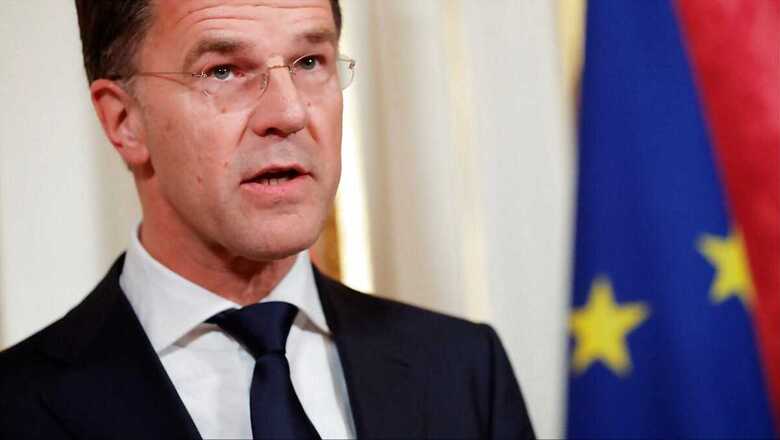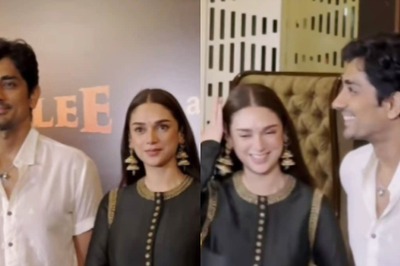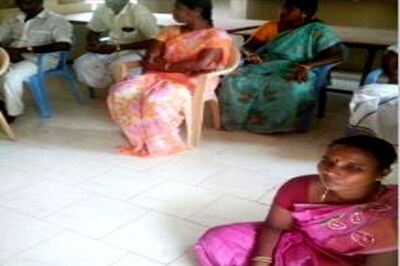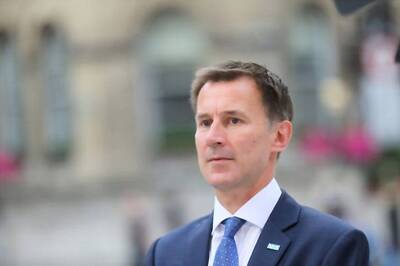
views
Prime Minister of the Netherlands Mark Rutte on Monday said the G20 New Delhi declaration was clearly a compromise, which is always the case with such a multilateral forum, but he was happy with the fact that there were some key elements in it and that India was able to broker it.
Rutte, who participated in the G20 summit hosted by India in New Delhi on September 9 and 10, visited Bengaluru as part of an economic mission.
“It was a compromise clearly, and that’s always the case when you come together with multilateral teams like the G20. But I was happy with the fact that there were some key elements in the declaration, which were important. But obviously, if I would have written it myself, it would have been different, but I wasn’t the only one; we were with a whole bunch of people. And it is good that India was able to broker a declaration,” Rutte said.
He was responding to a question by reporters on whether he was happy with the New Delhi declaration, specifically the paragraphs on Ukraine, or whether he thinks it is a compromise, during an informal press meet.
Rutte also stressed the need to elevate the India-Netherlands relationship to a more strategic level and not only on the economic side.
“Yesterday I had a meeting with the Prime Minister (Narendra Modi). We know each other very well, we discussed how to basically elevate our relationship to a more strategic level and not only on the economic side but also clearly on the security side…this is clearly a broad-based relationship,” he said.
Saying that India is going through rapid development and will be the third biggest economy in four or five years, he added, “That being said, we really are very proud to be part of that journey.” During his visit to Bengaluru, the Netherlands Prime Minister met Karnataka Deputy Chief Minister D K Shivakumar, Ministers M B Patil and Priyank Kharge, and top government officials.
Ahead of his visit to see a mural art piece created by Indian and Dutch artists on Church street here to mark 75 years of diplomatic ties between the Netherlands and India, he is said to have purchased a cup of coffee using the UPI payment system and was asked to comment on it.
“It looks very simple and easy, but I have no idea about its ramifications, so I cannot claim I’m an expert on this. But it was fascinating to go through the experience…,” he said.
Asked if there were any conversations going on to link Netherlands’ own fast payment system with India’s UPI, he said “It is clearly something we are discussing. Not so much linking, but to understand better what you guys (India) are doing. But obviously there are many issues on privacy, banking system, in terms of currency stability. We really have to work through all those issues, but it is clearly a development which we have to take seriously.” Speaking about his meeting with representatives of the Karnataka government, Rutte said the state is as big as Germany in terms of population, and the administration is being practical and action-oriented here.
“I was really impressed that the ministers and the deputy chief minister are really focusing on how to solve the issues, and not just restating the policies, but making it practical. It makes a big impression on the Dutch business community,” he said.
During the Bengaluru visit, Rutte also held discussions with Indian companies engaged in business with the Netherlands, and participated in a roundtable discussion with Dutch companies operating in Karnataka, Consulate officials said.
Asked about investment proposals and sectors, he said, “One of the things of course we are discussing with the central government is how we can have this whole semiconductor industry here in Bengaluru. We have (Netherlands-headquartered) NXP for example.” Pointing out that there are huge Indian companies like Wipro and others who are very successful in the Netherlands too, he said, “I had the opportunity today to speak to a couple of them, including Infosys. You (India) really have a very rich network of ICT (Information and Communications Technology) companies and you are big in chip design.
“The next step India clearly wants to take is on semiconductor production and chips production, it will take time, and we find it really exciting to be part of that journey.”




















Comments
0 comment